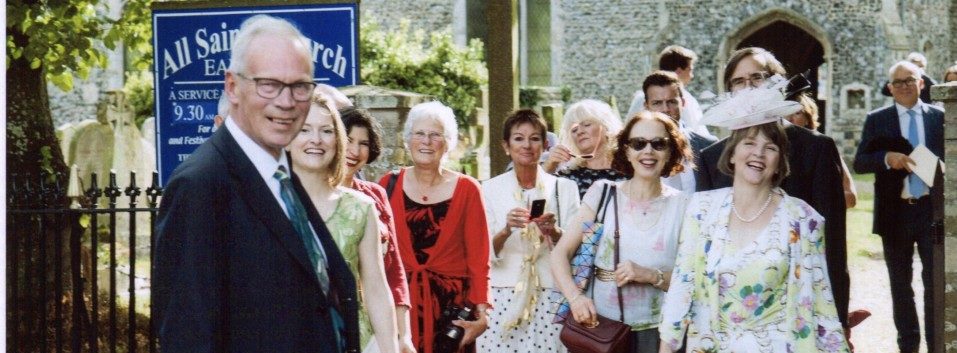And here’s a funny thing. My mother never hid her age, we all knew she was born on 11th November, 1923 – and yet she got her sums wrong. She always said she was 14 when the war broke out (September 1939) but of course she was 15, nearly 16.
She was a clever and ambitious child and had hoped to go to university. She passed the entrance exam to Trowbridge high school two years early. But she’d hardly started at her new school in Weymouth when war was declared and, on the south coast, it seemed a safer place than London and refugee children were sent there. So the pupils had half day schooling and had to leave their books behind for the refugees in the afternoon. Once the headmistress started to hold frequent fire drills and everyone had to leave lessons to go and hide in hastily-dug trenches, nothing was learnt at all. So Jane left school the next summer after taking O Levels and went to a secretarial school near Weymouth harbour.
It sounded quite fun really. The teacher, a rather fussy chap, had little control over his students. When the air raid warning sounded, they all rushed up to the flat roof to watch the ‘dogfights’ between enemy and Allied planes whilst he wrung his hand and begged the young ladies to go to the shelter. They thought the fighting was great fun, especially when a German plane was shot down. They they’d go downstairs in time to watch the airmen being taken to the local police station. They were always in their socks, having lost their boots to the water. Mummy got to know the local policeman later, Mr Carter, and could imagine his stolidly courteous interrogation.
Finally however, one of the British planes was shot down and the crew were killed and it brought home to them that it wasn’t fun at all. Worse, a plane was lost altogether, and at harvest time the next summer it was found in a cornfield, with the bodies of the crew still in their seats.
As time went by, Jane became old enough to be called up. She didn’t want to join one of the Forces. She was confident among people and in situations she knew, but she was uncertain about being with strangers. She didn’t want to wear military uniform and she was very modest and didn’t care at all for the idea of a medical examination. So she volunteered to join the Land Army.

Twowbridge from Weymouth? That’s a long way, surely? Or am I missing something? Was Trowbridge High in Weymouth?
Yes love, she went there when she was 9 and moved to just outside Weymouth (and changed to a much poorer school) when she was 14 and her father left her stepmother.
It’s fascinating to read a quite different account of the war from many others. Life was so varied across the country then.
Joining the forces might have been almost like going to a foreign country.
Loving this recounting.